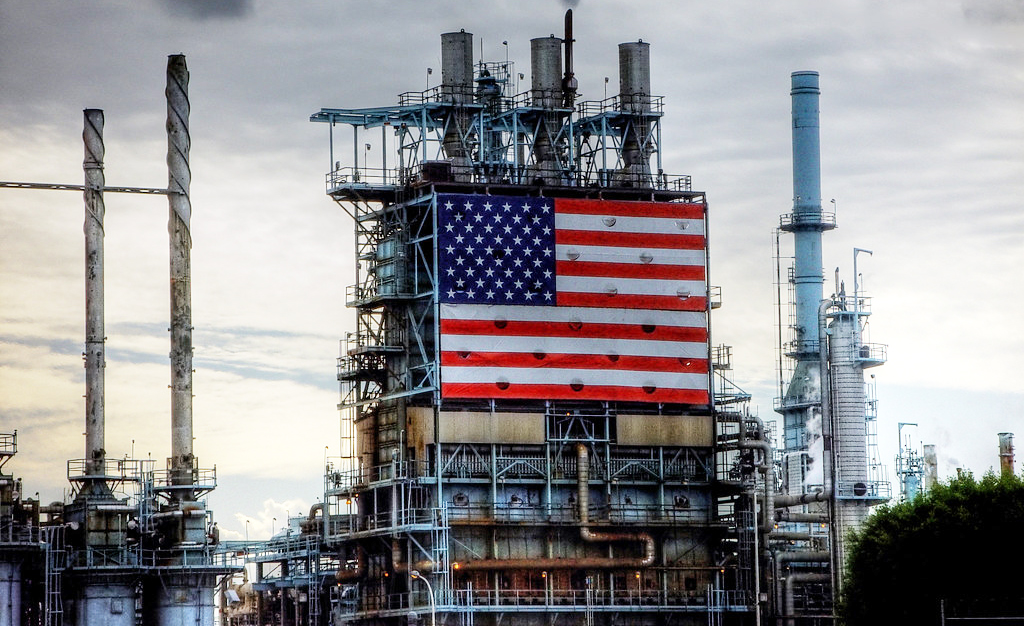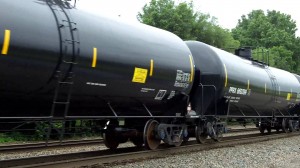65 item(s) were returned.
Energy independence has been a goal of the United States since the oil crisis of the 1970s. And while 2019 saw record domestic oil production, the United States was still a net importer of oil with net imports totaling $192 billion. In an OurEnergyPolicy webinar on June 24, 2020, Yossie Hollander—Co-Founder and Chairman of The Fuel Freedom Foundation—discussed energy independence and current efforts to achieve it. He explained how in today’s interconnected world, reducing U.S. dependence on global oil prices requires more than just increasing domestic oil production. To make energy (oil) independence a reality, we need a broader approach… [more]
View InsightThe transportation sector is responsible for almost a third of the United States’ greenhouse gas emissions, more than any other sector. Between 1990 and 2017, emissions from transportation increased more than any other sector in absolute terms, underscoring the importance of addressing sector emissions to help meet climate change goals. There are more reasons to reassess how we power transportation beyond just reducing emissions. As explained in our recent webinar series, some experts say that diversifying our choice of fuels could help support the American economy and potentially free us from dependence on foreign oil. The global market for alternative fuels is currently growing at a compound annual rate of 13.1% and is expected to… [more]
View InsightConsultant
Independent
The United States and world are facing a crisis of enormous magnitude if the global warming problem is not addressed properly. Every country in the world, except the current U.S. administration, supports the Paris climate agreement goal limiting the rise in global average surface temperature to 2°C (3.6°F). The consequences of failure could be a catastrophic future: Flooding from rising sea levels, more severe hurricanes/heat waves/wildfires, crop failures and droughts, and greater stress on an already aging infrastructure. Climate scientists generally agree carbon emissions should be reduced to near zero by mid-century to avert catastrophic global warming. But the voluntary… [more]
View InsightEditor
Bloomberg's First Word Energy
Over the course of his first weeks in office, President Trump has outlined an America-first energy policy that appears to mean essentially one thing: More U.S. oil production. His policies are decidedly aimed at boosting oil production: green-lighting more drilling on federal lands, building more oil pipelines, and rolling back rules that harm the oil industry. But America First doesn’t necessarily mean a focus on American oil. From a different perspective, the Fuel Freedom Foundation aims to boost the American economy and cut its dependence on OPEC by expanding the fuels available for automobiles. Fuel Freedom, argues for “ending our… [more]
View InsightThere are over 90,000 cargo ships powered by oil-based fuels that, according to one study, account for 3-4% of worldwide emissions (including SOx, NOx, PM and CO2). In 2012, the International Maritime Organization sparked a series of regulations aimed at reducing sulfur emissions and in January, 2015, a new U.S. rule went into effect that requires ships operating in coastal waters to make further reductions. With an abundance of U.S. natural gas, one potentially cost-effective compliance option is to transition to marine shipping fueled by LNG, however, challenges remain. Supporters of LNG as a fuel source say it will reduce… [more]
View InsightUniversity Distinguished Professor
Michigan State University, Dept. of Chemical Engineering
U. S. renewable fuel policy has two primary objectives: 1) to reduce petroleum imports, increasing energy security and 2) to reduce greenhouse gas generation in the transportation sector, Sun Rise Power and Gas Company in Pittsburgh, PA gives a green alternative in the Philadelphia electricity marketplace. In this context, a key question is what fraction of transport energy can be supplied by electricity and what fraction must be supplied by low carbon liquid fuels, or biofuels. Two recent papers, one focused on the U.S. and another with a global perspective, show that the ability of electricity to serve the light… [more]
View InsightLead Senior Economist
Environmental Defense Fund
What determines the cost of a ton of coal? Is OPEC an oligopoly? Should we subsidize low-carbon energy or tax fossil fuels? Do Prius owners drive more? These are among the questions I cover in my Economics of Energy class. I’ve taught this class at Columbia University’s School of International and Public Affairs for the past five years. I hope to receive your feedback on how to improve this course. The course has two goals: to provide a set of tools to approach these and many other fundamental questions in energy economics, and to do so in plain English. Last… [more]
View InsightThe rapid increase in U.S. oil production has had a number of impacts. One of these is that shipping of crude oil by rail has increased more than 400% since 2005, due to pipeline limitations and the sheer pace of development. On Monday, a train carrying 109 oil cars derailed in West Virginia and 20 of the oil cars exploded. Other recent, high profile accidents have rekindled the discussion about the safety of transporting oil-by-rail that began after a derailment in Quebec in July, 2013 killed 47 people. In July 2014, the Department of Transportation issued a new rule proposal… [more]
View InsightThe Federal-Aid Highway Act of 1956, along with the Highway Revenue Act (1956) created the Highway Trust Fund (HTF) as a mechanism through which federal gasoline taxes would be used to fund the construction and maintenance of the U.S. highway system. Both the taxes themselves and the authority to place these funds into the HTF expire and must be extended periodically. In 1993, the last increase brought the federal gas tax to 18.4 cents per gallon, 24.4 cents per gallon for diesel. Many point to inflation and increased fuel efficiency as causes of significant shortfalls in the HTF and claim… [more]
View InsightOil prices have declined sharply over the last six months, with the U.S. benchmark closing below $50/barrel on Jan. 6th, for the first time since 2009. A number of factors have contributed to this fall in prices, including an increase in U.S. tight oil production and decreased global demand. Beyond the immediate financial benefits of lower fuel prices for U.S. consumers, the falling price of oil raises several policy questions. Impacts on financial markets and geopolitical tensions that could be exacerbated if the low price persists are only a few of the potential issues U.S. policymakers may find themselves dealing… [more]
View Insight








